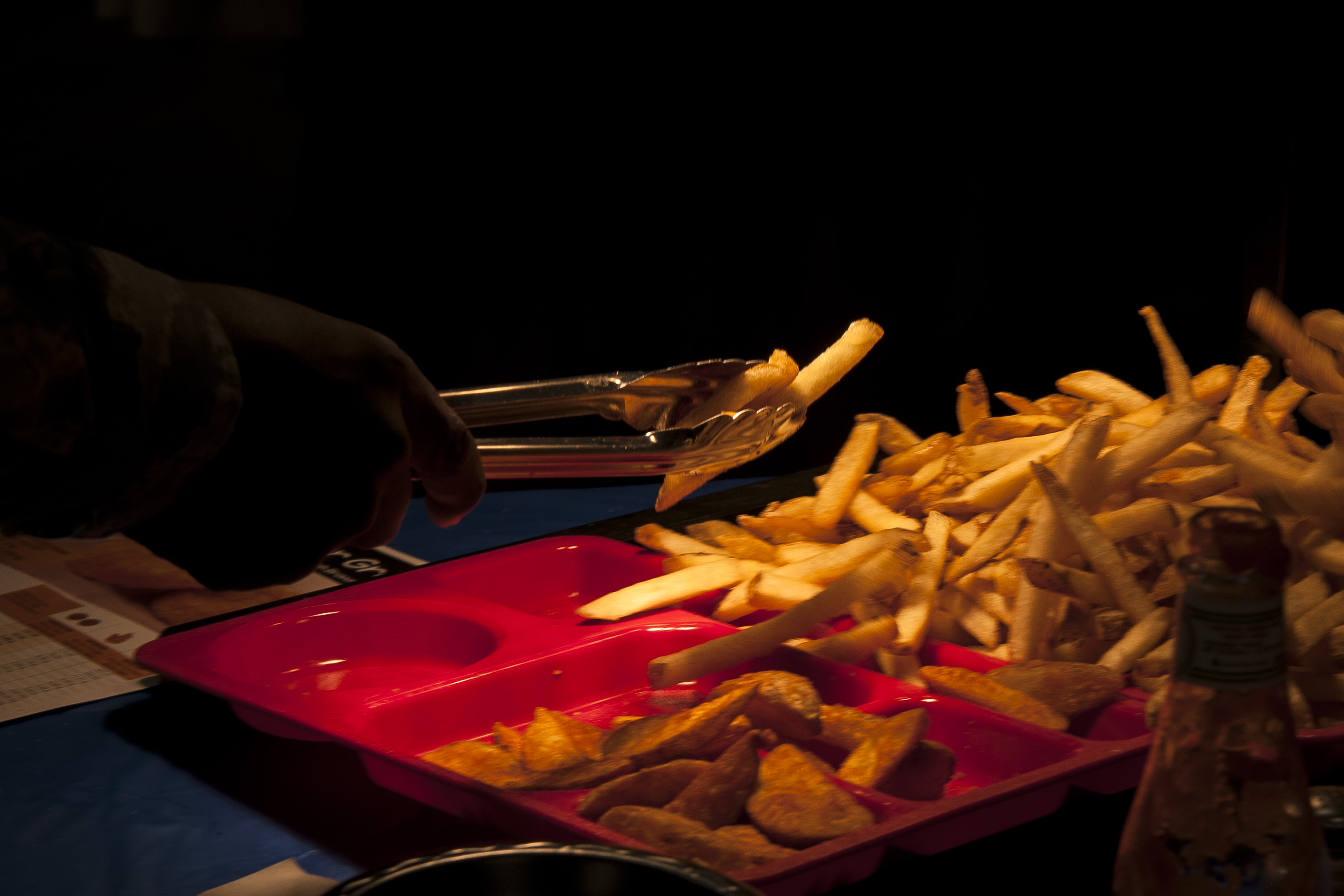Being a student in a university comes with many benefits, a huge one being how easily
accessible just about everything becomes. But probably the most convenient aspect of this is how easily we can access fast food. In the time it takes me to walk from the Arts Block to Tolteca, KC Peaches, or Spar, a UCD student would struggle to even walk from a lecture building to the one next door. But, unsurprisingly, student life in Trinity is not created equal and some can benefit more from the endless supply of food options than others.
It doesn’t take long to realise that a lot of these city centre food options come with a pretty
high price tag, and therefore simply aren’t viable options for less wealthy students of Trinity. Specifically, the healthy options are almost completely written off. If you’re struggling with money, why would you spend €7 on a salad from Chopped when you can get six sausage rolls in Spar for only €2? Dublin has become an incredibly expensive city, and with the prices of rent rising astronomically, a lot of students don’t have the space in their budgets for a healthy lifestyle.
On top of this, working students just don’t have time to look after themselves in the same
way students who don’t have to work do. If you’re running between lectures and a part-time
job and need to get food on the way, your number one priority is not going to be the health
benefits of what you eat; it’ll be the price and convenience. If you’re working over 20
hours a week on top of being a full time student, exercising and regularly going to the gym
aren’t going to be a priority either. It can be hard to balance a hectic student schedule at the
best of times, but add on money problems and working long hours and it becomes almost
impossible to find either the time or the budget to look after yourself.
“With all the cheapest options being so unhealthy, it’s not surprising that there’s a direct link between lower spending power and being overweight.”
While struggling with health because of cost is a big problem for students, it only becomes
more pressing for older, less well-off people. In Tesco, you can get an oven pizza for just over a euro, whereas it would cost much more than that to make a homemade meal of the same level. So, when you have a family of four to feed, it’s just not feasible to supply them with a healthy homemade meal on a tight budget. With all the cheapest options being so unhealthy, it’s not surprising that there’s a direct link between lower spending power and being overweight. We can’t expect a parent who’s working full time to come home and spend more time and money preparing food for their children than absolutely necessary.
Diminishing the price gap between healthy and unhealthy food is a difficult task. The fat and sugar taxes proposed by the likes of Jamie Oliver won’t work, making the cheap food more expensive only puts more strain again on less well-off people. Jamie Oliver himself has a recipe for a milkshake that contains 186 grams of sugar, so it’s hard to believe he’s really fighting against obesity with this sugar tax, with the message here seeming to be that he doesn’t mind people consuming more than the recommended amount of sugar, so long as
they’re rich and can afford it.
But maybe there’s a way for governments to put more responsibility on restaurants and
shops to supply healthy food at a lower price. There should be more pressure put on suppliers to offer healthier low price options. For example, why do chicken fillet rolls need to have breaded chicken? Why is there no grilled version available? Surely a small change like this wouldn’t create a great added cost for Spar or Centra, but could make a slight difference in the diet of less well-off students. Not only are the majority of cheap food options in Dublin extremely unhealthy, some of them seem to be even more unhealthy than they need to be.
The problem here is there’s no incentive for these restaurants to supply healthy food. When cooking at home, we might try to limit the amount of oil or salt we use, but there is no reason for a restaurant to do this. We have no reason to think about how much salt or oil a restaurant is using, and often, a dish can seem much less harmful than it is, with lots of unhealthy hidden ingredients.
“The problem with taxing fats or sugars is that this doesn’t create a direct incentive to supply healthy food.”
We need to look at the role these restaurants and outlets play in our society. Do they have a
social obligation to offer healthy options? Or an obligation to make it clear just how unhealthy
their food is? Maybe they don’t, but there must be some way to incentivise them to improve the standard and value of healthy food they offer now. The problem with taxing fats or sugars is that this doesn’t create a direct incentive to supply healthy food. This just creates a need to raise prices.
Unfortunately, food choices are not only based upon individual preferences, but are also
constrained by social and economic circumstances. It’s clear that the health divide in relation
to class in Ireland is strong, and it’s time that Dublin offered healthier options at a cheaper price.






